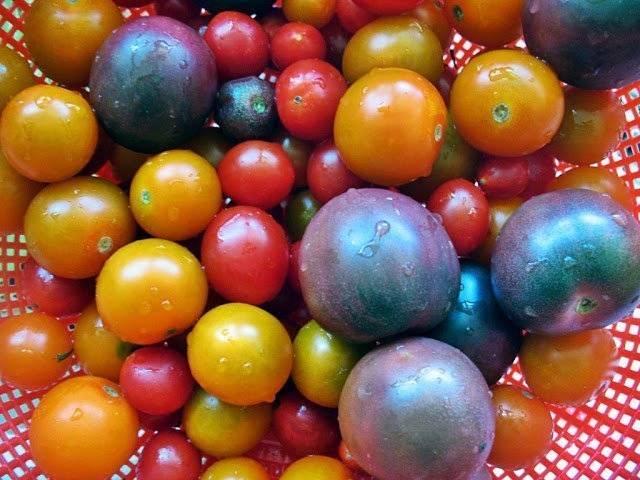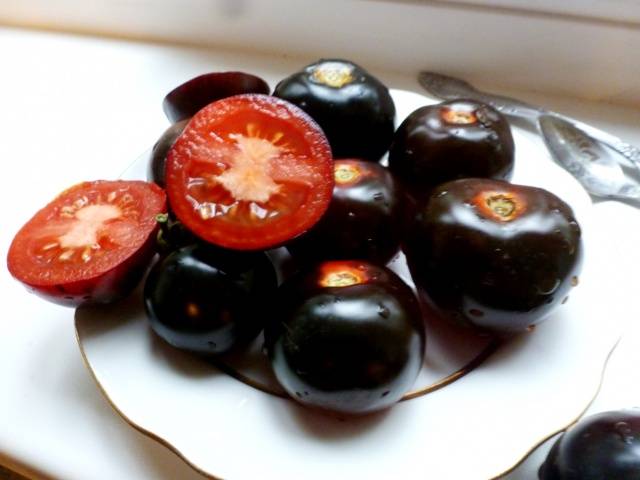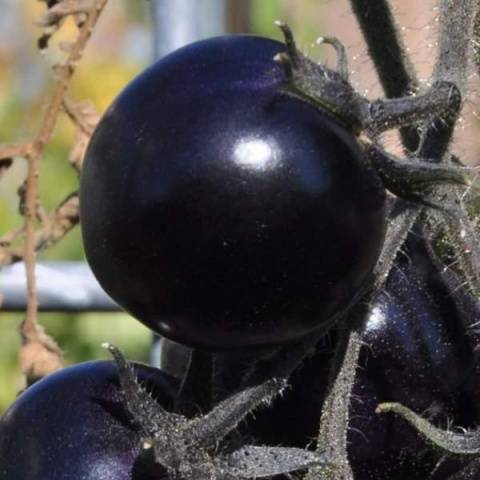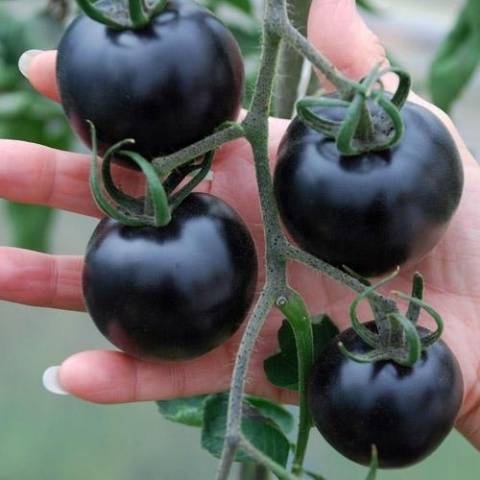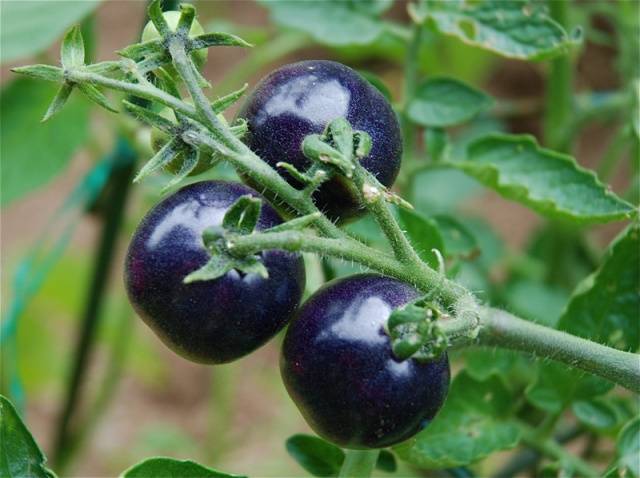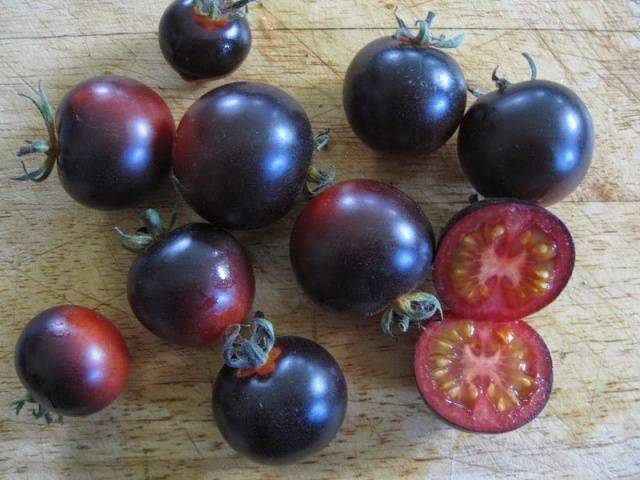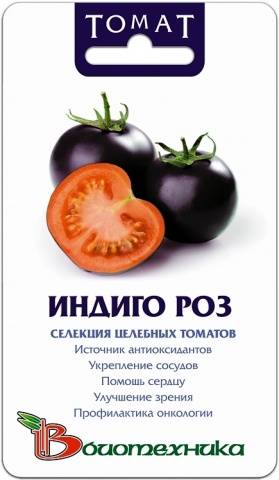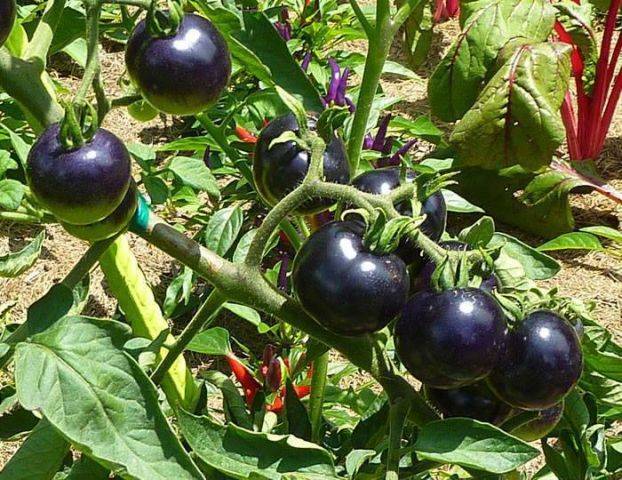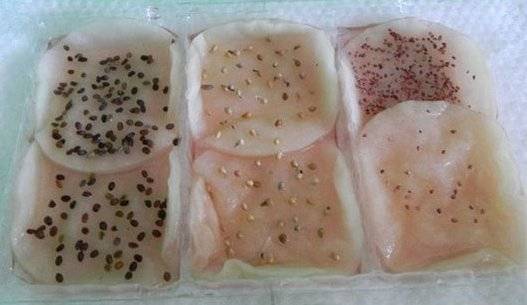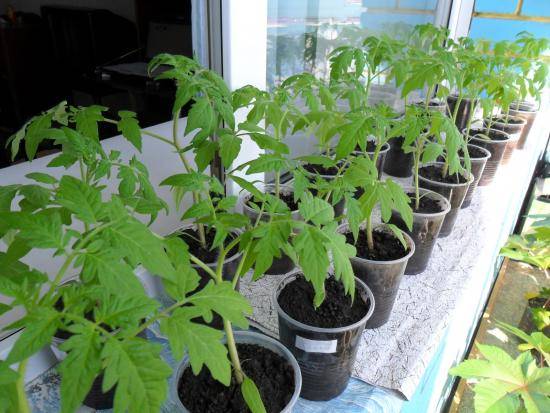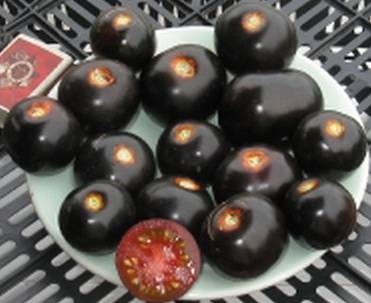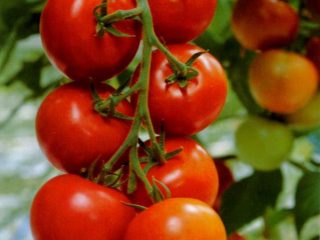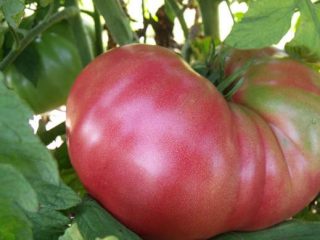Content
Among the wide variety of tomatoes, the gardener chooses those that suit him best. Each has its own selection criterion. For some, the main thing is yield, for others, the taste of the fruit comes first. There is a large group of people who like to grow exotic varieties. They offer not only a large assortment of seeds sold by various companies, but also a collection of enthusiastic tomato growers who are not averse to sharing seeds of rare varieties.
Where did dark tomatoes come from?
Many gardeners believe that black tomatoes are genetically engineered and transgenic. In fact, this is not true. Indeed, in nature, plants have practically no gene responsible for the black color of fruits. But there are 6 other genes that form the color of tomatoes. Together, they produce substances that determine their color:
- chlorophyll - present in any green fruit;
- lycopene - it is he who gives the tomatoes their red color;
- carotenoids, most of them in carrots and pumpkin, but also in tomatoes;
- anthocyanins - give the appropriate color to beets and other purple-colored vegetables. It is they, together with the rest, that give the tomatoes their original dark color.
The benefits of dark colored tomatoes
Red tomatoes, familiar to most people, are being replaced by varieties colored "not according to the rules." Among them are brown, blue and even black. Why are they better than tomatoes of traditional color? The color of a tomato is due to the content of coloring pigments in it, which have many useful properties. If useful lycopene and carotenoids are found in all varieties, then only black and purple tomatoes can boast of anthocyanin content.
What are anthocyanins valuable for?
- are immunostimulants;
- have bactericidal properties;
- strengthen the walls of blood vessels, especially capillaries;
- have a decongestant effect;
- are antioxidants, that is, they are able to bind free radicals, helping to avoid cancer.
In the human body, they are not synthesized, but they are very necessary for him, especially during illness. Therefore, the products are so valuable, allowing to eliminate the deficiency of this irreplaceable substance.
There are not many truly black tomatoes. The darkest of them is the Indigo Rose variety. He shares the palm with another original tomato called Blueberry.
To understand what the Indigo rose tomato variety is, we will draw up a detailed description and description of this curiosity, but for now we will admire the photo.
Feature and Description
The Indigo Rose tomato variety was bred quite recently. In 2015, Jim Myers, professor of horticulture at the American University in Oregon, crossed purple-colored cultivars with wild tomato plants native to the Galapagos Islands and Chile. The result is an amazing black variety.
Its features:
- ripening period - early, the first fruits can be tasted after 100 days, and in hot summer and a little earlier;
- the tomato variety Indigo rose can be grown in open ground, where it grows up to 1 m and in a greenhouse, where its height is slightly higher, according to gardeners, it can grow up to one and a half meters;
- the bush is not very leafy, the leaves are of the usual type. Sometimes they can curl - this is a feature of the variety;
- Indigo rose tomato forms a simple brush, the number of fruits in it is from 6 to 8;
- the color of the skin is black, but not always: if the fruit is covered with leaves from the sun, part of it remains pink - hence its name;
- the skin is quite dense, which makes it possible to use Indigo rose tomatoes not only in salads, but also in pickles and pickles;
- tomatoes of this variety are well stored, their taste is interesting, very rich, the fruit inside is red;
-
Indigo rose tomatoes have a very strong aroma that can be felt at a distance of several meters;
- the size of the fruit strongly depends on the care, most manufacturers position it as a cocktail variety, but the reviews of gardeners say that the fruits can be even more - up to 100 g;
- the originator of the variety claims that the plants of this tomato can withstand frosts down to -5 degrees, but the reviews of gardeners in this regard are ambiguous.
To give a complete description and description of the Indigo rose tomato variety, it must be said that it is distinguished by its increased resistance to late blight.
Until recently, Indigo Rose tomato seeds could only be found from collectors. Now they are also distributed by Biotechnika.
The yield of this variety is average, but it is appreciated not for it, but for the excellent dessert taste of the fruit.
Agrotechnology of black-fruited tomatoes
Breeders are still debating whether the plants benefited from the acquisition of such an unusual color. Among some of them, there is an opinion about the low germination of seeds of this variety, slow growth, a long ripening period and poor resistance to diseases, although reviews of gardeners often say the opposite.
But first you have to grow seedlings.
Growing seedlings
Growing seedlings of these tomatoes has no peculiarities.
- We carry out the preparation of seeds: we treat them with a dressing agent - potassium permanganate in a concentration of 1% or a solution of phytosporin. In order not to worry about seedlings, it is best to germinate the seeds of Indigo Rose tomatoes. We do this after soaking in a growth stimulator, which we carry out according to the instructions for the selected drug.
-
Germination is best done in damp cotton pads.
For successful germination, greenhouse conditions are needed: constant high temperature and high humidity. - We sow the seeds that have nailed in the soil for tomatoes and keep them warm until shoots appear, preventing the soil from drying out. So that the plants do not waste time on adaptation after picking, it is better to plant them immediately in separate cups.
- Hatched loops are a signal that the seedlings need light. We transfer them to the brightest place so that the seedlings do not stretch out.
- We keep seedlings at a temperature of 18 degrees at night and about 22 degrees - during the day.
- Watering is needed sparse, but sufficient so that the soil in the pot is completely wet.
- For better growth, we feed the shoots 2 times with a weak solution of mineral fertilizers: in the phase of 2-3 true leaves and after another 2 weeks.
Leaving after disembarkation
The planting scheme for this variety is usual: 40-50x60 cm. Further care is as follows.
- Watering. The Indigo rose tomato is considered a drought-resistant variety, so watering it once a week with warm water is enough for it. But this is subject to mulching the soil with organic materials.
- Top dressing. They are standard: the first is carried out 2 weeks after the root of the seedlings, the subsequent ones - once a decade.A complete mineral fertilizer is used, adding ash to it during the fruiting period as a source of potassium. The disease with apical rot on tomatoes of this variety was not noticed, but on sandy loam and sandy soils it is better to carry out a single top dressing with calcium nitrate at the time of the formation of ovaries on the second brush. It will help to increase the yield and spraying with boric acid solution at the time of flowering tomatoes. They are carried out 2 times.
- Formation. Both in the open field and in the greenhouse, the Indigo rose tomato needs pinching and a garter. In the south, you can remove the stepsons to the first brush, to the north - the tomato is formed into 2 stems, removing all the other stepsons.
A few words about harvesting. Indigo rose tomatoes become fully ripe when they have acquired the characteristic color of this variety and become slightly soft. Many gardeners pick tomatoes before they are fully ripe, and are disappointed with the taste.
Here's how to grow tomatoes of this variety without pinching:
If there is a desire not only to consume a delicious vegetable, but also to be treated with it, the Indigo Rose variety of tomatoes is the best choice.
